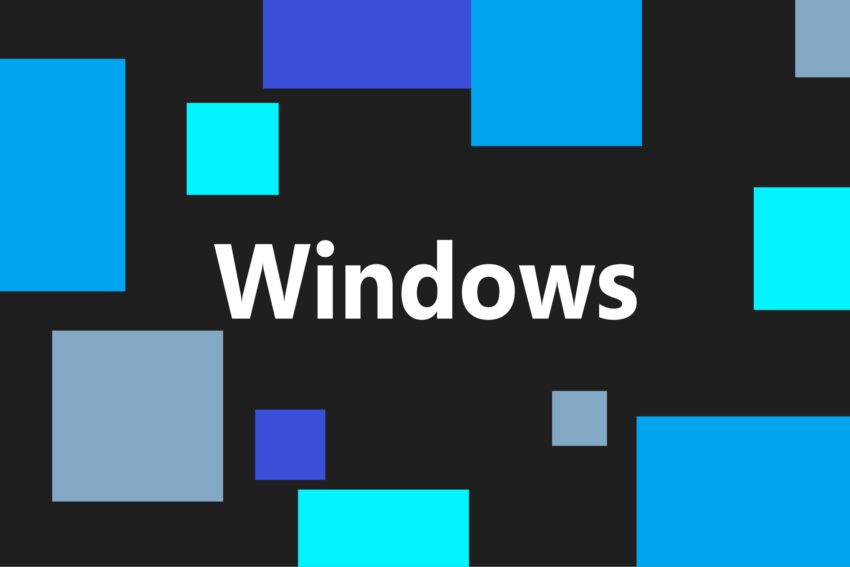
as windows turns 40 microsoft faces an As Microsoft celebrates the 40th anniversary of Windows, the tech giant finds itself facing a significant backlash over its aggressive push into artificial intelligence.
as windows turns 40 microsoft faces an
A Look Back at Windows’ Evolution
Since its inception in 1985, Windows has undergone numerous transformations, each reflecting the changing landscape of technology and user needs. The operating system began as a graphical user interface for MS-DOS, evolving into a platform that has become ubiquitous in personal and professional computing. Over the years, Microsoft has introduced several versions, each with its own set of features and challenges.
Windows 8, released in 2012, marked one of the most controversial chapters in this history. The operating system aimed to create a touch-friendly interface in response to the growing popularity of tablets, particularly the iPad. However, the removal of the traditional Start menu and the introduction of the tile-based interface left many users bewildered. The backlash was swift, with critics and users alike expressing frustration over the drastic changes. Microsoft eventually acknowledged these issues, leading to the release of Windows 10, which reinstated the Start menu and aimed to unify the desktop and touch experiences.
Windows 11 and the AI Overhaul
Fast forward to 2021, and Microsoft launched Windows 11, which introduced a more streamlined and modern interface. However, as we mark the 40th anniversary of Windows, the focus has shifted to the operating system’s ongoing integration of artificial intelligence. This AI overhaul is reminiscent of the Windows 8 experience, raising concerns among users about whether Microsoft is once again pushing for a future that many are not ready to embrace.
The AI Push
Microsoft has been vocal about its commitment to integrating AI into Windows 11, positioning it as a key feature that will enhance productivity and user experience. The company has introduced several AI-driven features, such as improved virtual desktops, enhanced search capabilities, and intelligent task management. These innovations aim to make the operating system more intuitive and responsive to user needs.
However, the rapid pace of these changes has sparked a backlash. Many users feel overwhelmed by the constant updates and the introduction of AI features that they did not ask for. Critics argue that Microsoft is prioritizing technological advancement over user experience, echoing the sentiments expressed during the Windows 8 era. The fear is that, much like before, users may find themselves alienated by a system that feels more like a beta test than a finished product.
User Reactions
The response from the user community has been mixed. While some users appreciate the innovative features and the potential for increased productivity, others express frustration with the lack of clarity and control over these AI functionalities. The introduction of features like AI-generated suggestions and automated task management has led to concerns about privacy and the extent to which the operating system is learning from user behavior.
Many users have taken to online forums and social media to voice their concerns. Comments range from praise for the potential of AI to outright rejection of the changes. Some users have reported feeling as though they are being forced into a new paradigm of computing that they are not ready to accept. This sentiment echoes the backlash against Windows 8, where users felt that their preferences and workflows were disregarded in favor of a vision that did not align with their needs.
The Implications of AI Integration
The implications of Microsoft’s AI integration extend beyond user experience; they also raise questions about the future of the operating system itself. As AI becomes more embedded in Windows, the operating system may evolve into something fundamentally different from what users have come to know. This shift could redefine how users interact with their devices, but it also risks alienating those who prefer a more traditional computing experience.
Privacy Concerns
One of the most pressing issues surrounding AI integration is privacy. As Windows 11 collects data to improve its AI features, users are increasingly concerned about how their information is being used and stored. The balance between personalization and privacy is delicate, and Microsoft must navigate this landscape carefully to maintain user trust.
Critics argue that the company has not done enough to address these concerns. Transparency about data collection practices and the ability for users to opt-out of certain features are crucial for fostering a sense of security. Without these measures, users may feel that their choices are being dictated by the operating system rather than being empowered to customize their experience.
Market Competition
Microsoft’s push into AI also comes at a time when competition in the tech industry is intensifying. Companies like Apple and Google are also investing heavily in AI technologies, and users have a plethora of options when it comes to operating systems and devices. If Microsoft fails to strike the right balance between innovation and user satisfaction, it risks losing market share to competitors who may offer more user-friendly alternatives.
Stakeholder Reactions
The reactions from stakeholders, including industry analysts and tech enthusiasts, have been varied. Some see Microsoft’s AI initiatives as a necessary evolution that will keep the company relevant in an increasingly competitive landscape. They argue that embracing AI is essential for enhancing user experience and meeting the demands of modern computing.
On the other hand, there are voices of caution. Analysts warn that if Microsoft does not heed user feedback and address concerns about usability and privacy, it could face a backlash similar to that experienced during the Windows 8 era. The importance of user-centric design cannot be overstated, and stakeholders are urging Microsoft to prioritize this in its ongoing development efforts.
The Road Ahead
As Microsoft navigates this critical juncture in its history, the company must consider the lessons learned from past missteps. The 40th anniversary of Windows serves as a reminder of the importance of user experience in shaping the future of technology. While the integration of AI holds great promise, it must be approached with caution and a commitment to user needs.
Looking ahead, Microsoft has the opportunity to redefine its relationship with users by fostering an environment of collaboration and transparency. Engaging with the community, soliciting feedback, and making adjustments based on user input can help the company avoid the pitfalls of the past. By prioritizing user experience alongside innovation, Microsoft can ensure that Windows remains a relevant and trusted platform for years to come.
In conclusion, as Microsoft celebrates four decades of Windows, the company stands at a crossroads. The ongoing AI overhaul presents both opportunities and challenges, and how Microsoft responds to user concerns will shape the future of the operating system. The lessons learned from Windows 8 should serve as a guiding principle as the company moves forward, striving to create a user-friendly experience that embraces the potential of AI without alienating its user base.
Source: Original report
Was this helpful?
Last Modified: November 20, 2025 at 10:40 pm
1 views















